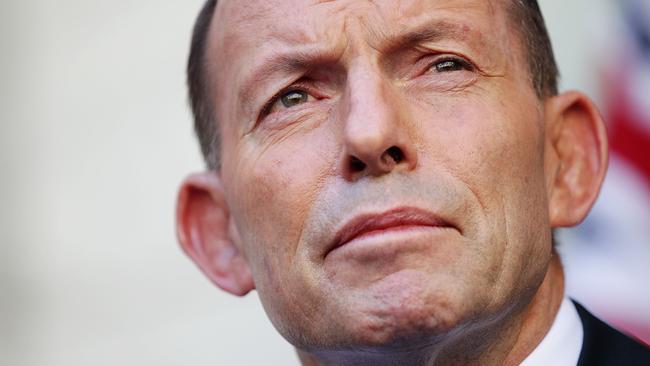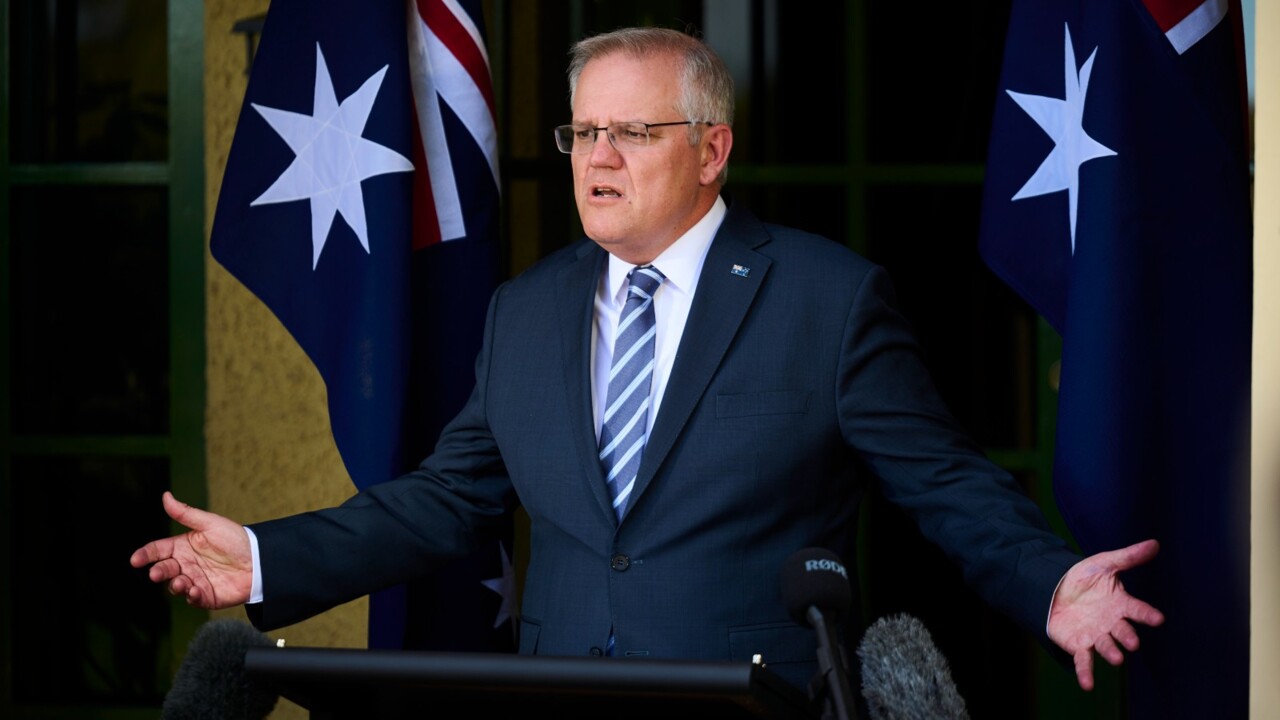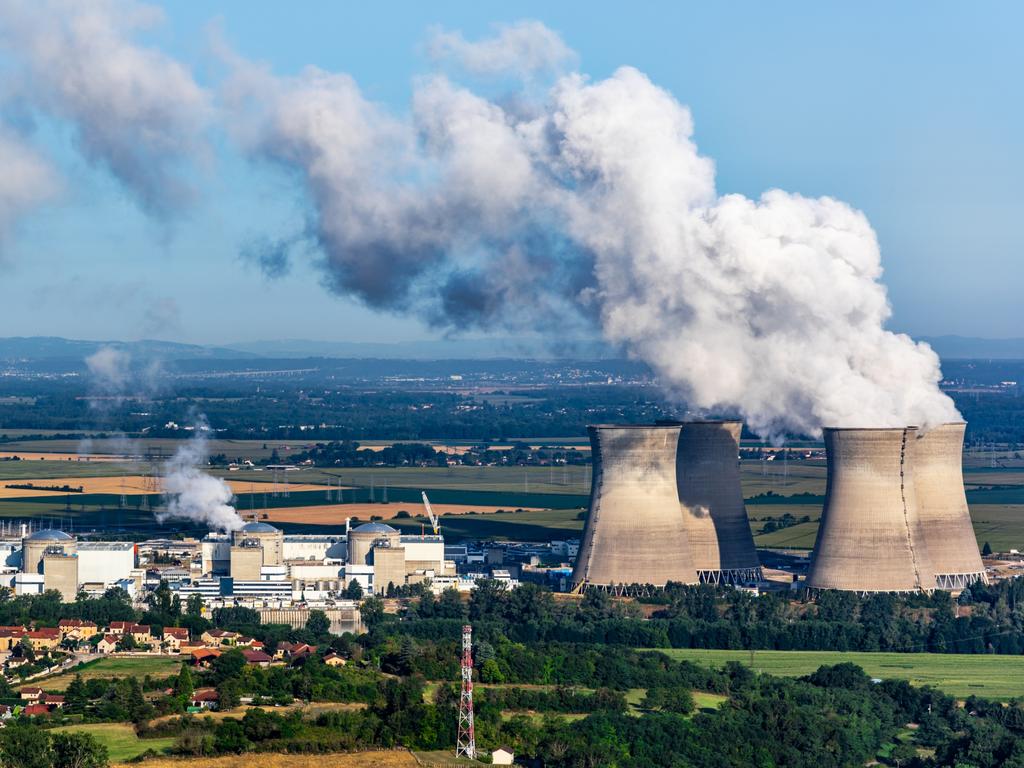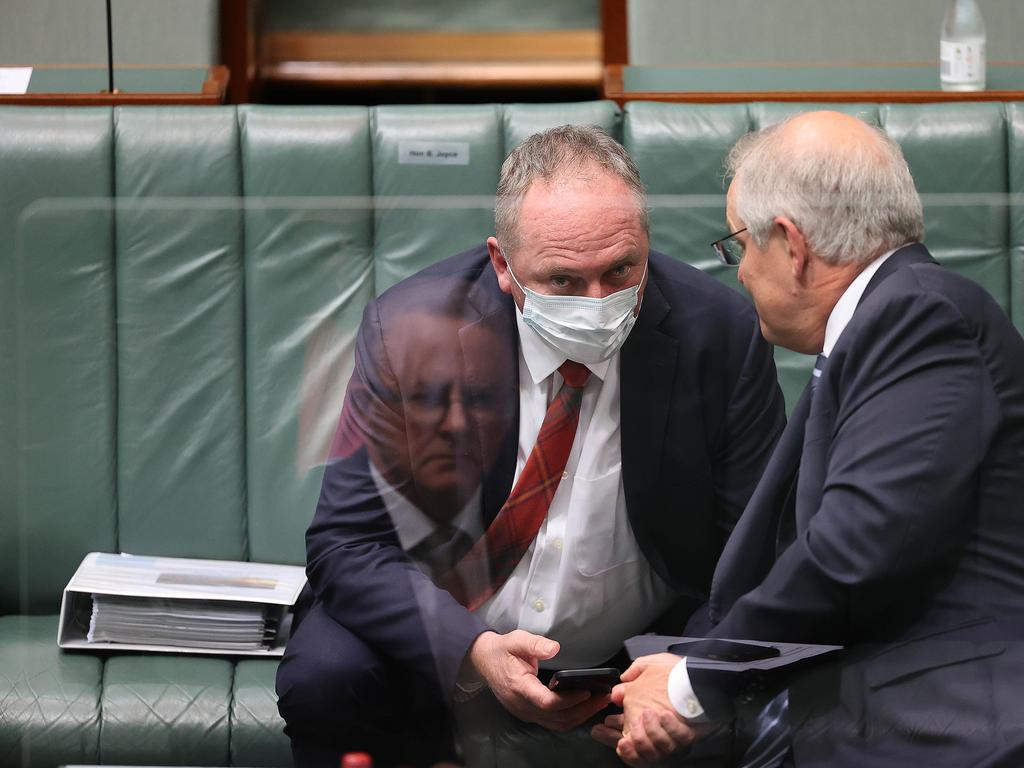If we’d listened to climate maximalists we’d be broke now


That is just complete nonsense. In reality, as you’d expect in a democracy, our contending politics has produced reasonable outcomes. It’s dangerous when everyone agrees. It’s healthy when policy is contested. That some of the climate change certitudes have been criticised by the likes of Barnaby Joyce, Matt Canavan, the Institute of Public Affairs, Tony Abbott and many other climate action realists, who have argued that climate policy can have excessive costs, has helped us avoid the worst policies.
Instead, we got policies that are not perfect for anyone but are pretty good by any international standards.
This contest has mostly not been about the broad science of climate change but about the cost and utility of specific policies.
This column has a strong preference for reality over fantasy. This is why it so frequently points out that the phrase “the rest of the world” is almost entirely dishonest when applied to climate change policy. It typically leaves out almost all of Asia and many other parts of the globe.
So let’s look at the lost decade argument. In terms of reducing our emissions, our economy is 40 per cent larger than it was in 2005 and our emissions are 20 per cent lower. Given that during that time we added nearly six million people, that’s an extremely strong performance and one of the highest per capita reductions in the world. It’s a much bigger reduction than other countries that rely on energy exports, such as Canada, or have a big agricultural sector, such as New Zealand.

In the net-zero hysteria there has been much wild talk that if we had only kept Kevin Rudd’s emissions trading scheme, or Julia Gillard’s carbon tax, we would not only have eliminated more emissions but our economy would be better off because of all the jobs renewable energy and the like are mysteriously, and always some time in the indefinite future, set to deliver. The problem is there is not one speck of evidence this is true. I have my criticisms of the Coalition’s eight years in government. They’ve been reasonable managers but poor reformers. Abbott campaigned against and defeated the ETS and carbon tax. His Liberal successors continued those policies.
So what are the economic results of these wicked, Neanderthal policies? The Australian economy is 18 per cent bigger than it was in 2013. The G7 average is 8.5 per cent growth across that period. Unemployment was 5.7 per cent when the Coalition came to office, it’s now 4.6 per cent. Australian gross domestic product per capita is 6.6 per cent higher than in the September quarter in 2013. Before Covid hit, per capita GDP had increased by 0.9 per cent a year under the Coalition. Real national disposable income per capita, after inflation, is just under $2000 more than it was when the Coalition gained government. Most nations would love a lost decade like that.
Let’s ask the question in reverse. What have the climate action realists enabled over the past decade that has helped? For a start, if we’d gone down the maximalist climate change action road we would not have had that decade of economic growth and it would have been harder for us to pay for Covid. Emissions trading schemes have proven to be corrupt, leaky and ineffective in lowering emissions. Carbon taxes have also been ineffective. Those nations that have most embraced the zeitgeist popular climate actions in Western Europe are in the midst of energy crisis.
We opened more coalmines in the past decade – notably the Adani mine – and that was very good for our economy. It was also good for the environment because our coal is cleaner than Chinese, Indonesian or Indian coal. In so far as it displaces that coal, it results in lower emissions.
If we had been in maximalist climate action mode, could we have developed our magnificent gas industry? Probably not. We’ve had $200bn of investment in gas in the past decade. This is also good for the environment as our gas replaces old coal-fired power stations in the energy grids of our Asian customers, leading to lower emissions. We now pay much lower gas prices than most of Europe because we have that industry.
But gas is relatively emissions intensive in Australia. A climate maximalist government would not have developed our gas industry. Even in scenarios with deep emissions cuts, even in net-zero scenarios, the world will need a lot of fossil fuel for a long time. Australian fossil fuels, produced under stringent environmental conditions, are the last that should be abolished in any rational policy.

Look at the crazy contradictions climate action maximalist politicians get themselves into. US President Joe Biden has made fracking much more difficult, so the US cannot respond to higher oil prices in the way it did under Donald Trump, and indeed Barack Obama, by producing more oil flexibly through fracking.
The result is the oil sheiks of OPEC, plus Russia, once more dominate global energy supplies. Biden is discouraging oil production in the US while urging OPEC to increase production for the sake of the economy.
Almost everyone agrees we should reduce emissions and get to cleaner technology. But this has to be done rationally, conscious of the costs. The biggest failure of the Coalition government was when it failed to get up at an Australian university its proposal for an institute to be headed by Bjorn Lomborg. Lomborg accepts global warming but, on rigorous cost-benefit grounds, is critical of the costs of many specific proposed remedies.
A Lomborg institute would have injected a realistic assessment of the costs of proposed measures into the popular debate. The failure of the conservatives to follow this idea through with determination is part of their broader, and typical, failure in the intellectual debate.
Scott Morrison will no doubt sign up to an essentially meaningless net-zero target. It is by no means clear Western electorates will tolerate the massive increase in energy costs this will involve and no chance at all countries like China will embrace such costs. It is vital that the Prime Minister not legislate such an aspirational and distant target as that would remove all intelligent policy flexibility from Canberra, and inevitably put policy determinations in the hands of judges. (Yikes!)
And it would tend to deaden democratic debate, which is the single most useful tool we have in confronting climate policy.







Nothing is more ridiculous than the conventional wisdom among many politicians, activists and commentators that Australia has lost a decade in coming to grips with climate policy. It is widely proclaimed that this has cost us economic opportunities, jobs and export markets.